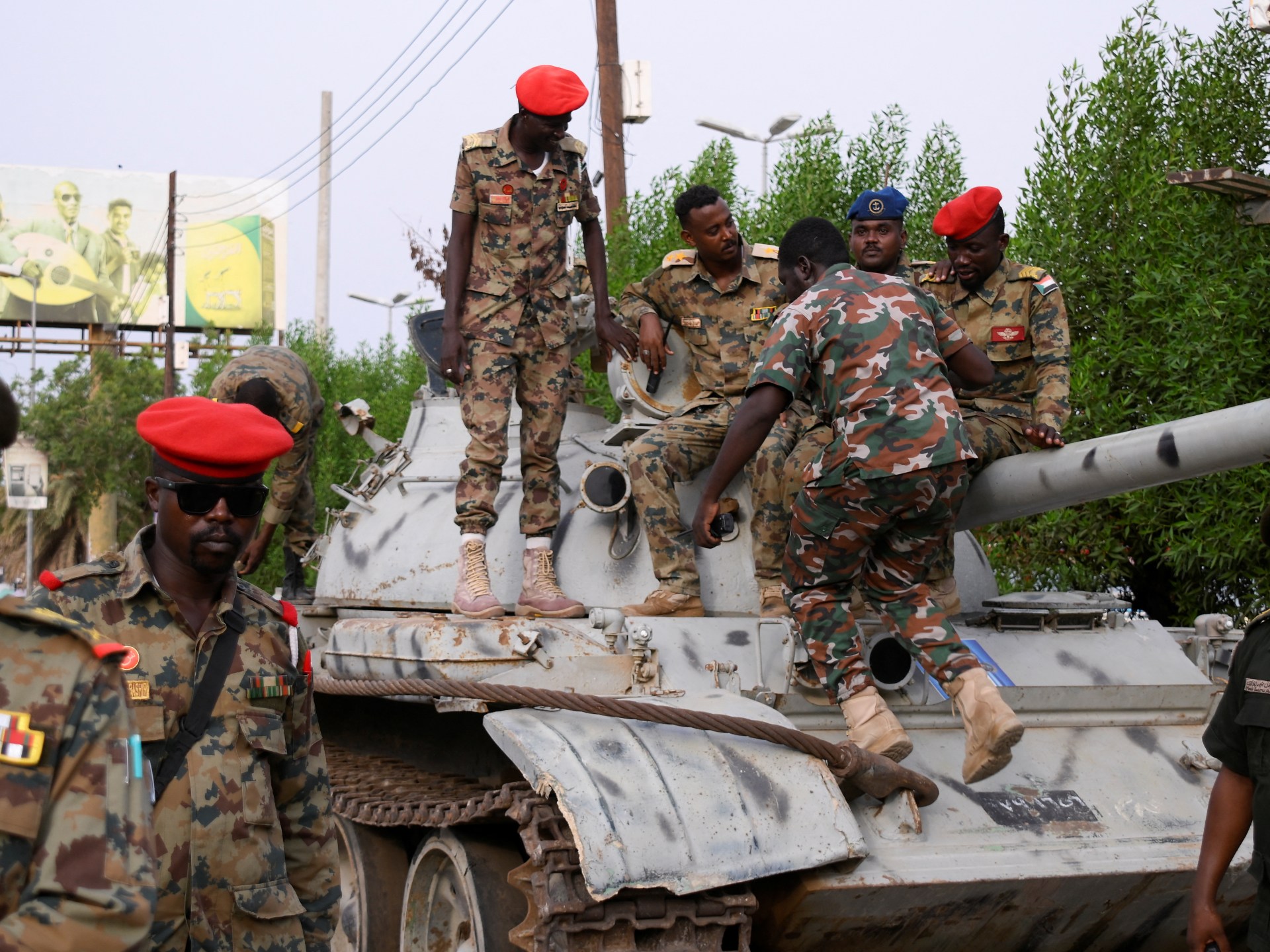For the first time in the conflict in Sudan, fighting broke out in Port Sudan between a tribal militia and the Sudanese army on Monday, and analysts say this reflects mounting tensions between eastern tribes and the army.
The militia claimed that it was inspecting several vehicles at a checkpoint to ensure that they belonged to the army and not the paramilitary Rapid Support Forces, which had recently threatened to attack the city.
Sudan’s civil war has largely spared the east, but some tribes fear the army’s dominant presence threatens tribal ownership of land, which could exacerbate local disputes.
There were no reported casualties and it is unclear what sparked the fighting in the Red Sea port city.
“The security situation in east Sudan is tied to old tribal families that have lived here for a long time,” said Yousuf Mahmoud, an activist in Port Sudan who asked to use a pseudonym for security reasons. “What’s missing is a solution. They must make social peace with each other and we must stop this trend of having so many armed groups or else the situation could get worse.”
But any unrest between the tribes – or between the army and the tribes – could endanger residents and derail relief operations, which use Port Sudan as a main logistics hub to administer aid across the country.
“I do think there is an interest among eastern tribes to not let the war blow up on their own home turf, but there are plenty of reasons that could go the other way,” said Alan Boswell, a Horn of Africa expert for the International Crisis Group, a non-profit committed to resolving conflicts worldwide.
“The east is a powder keg. We just haven’t seen it blow up yet.”
Militarising the east
Since June, the army has opened up dozens of recruitment centres in eastern Sudan to attract young people to fight against the RSF. Despite historic tensions with the army, many eastern tribes have enlisted their young men to acquire training and arms, analysts told Al Jazeera.
Suliman Baldo, the founder of the Sudan Transparency and Policy Tracker, which provides political analysis of the country, said the army’s recruitment drive could fuel local and ethnic disputes.
“The call for volunteers to join the army has generated a huge response from the east, because all [the tribes] fear being left out of [receiving arms and training],” Baldo told Al Jazeera.
The last major dispute in the east saw at least 37 people killed in a bout of ethnic violence between the Nuba and Beni Amr tribes in August 2019.
Mahmoud from Port Sudan said that there are two scenarios that could lead to a similar episode of violence.
“If a tribe feels excluded or if any tribe believes that a rival tribe tried to claim [disputed] land, then they might initiate an attack,” he told Al Jazeera.
Recurring mistakes
Arming and training tribes could also lead to a case of blowback, whereby those same tribes turn against the army, analysts told Al Jazeera.
That is the source of today’s civil war between the army and the RSF. The latter evolved out of the Arab tribal militias that the central government armed and recruited to crush a mostly non-Arab rebellion in 2003.
“The army isn’t learning from its past,” said Baldo.
Shibah Dirar, the leader of the Beja militia that clashed with the army last week, told the Saudi Arabian channel al-Hadath that he supported the fight against the RSF in Khartoum. However, that did not mean that he supported the army’s presence in Port Sudan.
“A special salute to all the formal armed forces at the centre of attacks and across Khartoum defending our home [Sudan],” Dirar said in the broadcast. “But those armed forces in the Red Sea state and the ones in closed rooms, we don’t stand by them.”
Dirar’s sentiment epitomises broader fears that the army will consolidate control over disputed tribal land, said Jonas Horner, an independent expert on Sudan.
“Under the kind of martial law situation currently at play in Sudan, there is much less assurance for tribal groups over the integrity of their ownership of their land, particularly where the army is increasingly utilising tribal land and where inter-tribal competition is exacerbated by a broader lack of law, order and enforcement,” he told Al Jazeera.
Aid at risk?
The brief clashes in east Sudan have put aid groups on high alert, but it has not prompted any pause or change in operations, according to three relief workers.
One source said that the clashes should compel the broader aid community to reevaluate the risks of funnelling all relief through Port Sudan. She said that the incident last week “spooked” aid organisations, but that it did not “scare them off”.
“In my opinion, there are real issues that humanitarian agencies need to pay attention to. I think we haven’t done a good job of really examining the implications of Port Sudan as our ‘base’,” she told Al Jazeera.
Another aid worker acknowledged that there is some concern about how stable Port Sudan is at the moment. He added that United Nations agencies and some international NGOs have over-relied on Port Sudan as a base for their aid operations, making it tricky for them to relocate in a hurry if needed.
“[Some aid groups] have a lot of eggs in the [Port Sudan] basket,” he told Al Jazeera. “But I wouldn’t say that this particular event has caused significant concern among the majority of aid actors present there.”
Mahmoud, the activist from Port Sudan, warned that the east could suffer a debilitating economic crisis and even a famine if aid operations were suspended for an extended period or relocated far from Port Sudan.
“I hope and believe that the tribes will not enter into a new conflict because it will be more violent than any previous war [we have seen here],” he told Al Jazeera. “Everyone will lose [if there’s conflict].”
